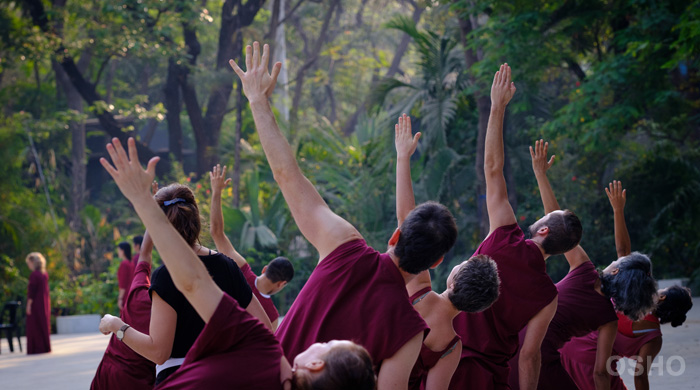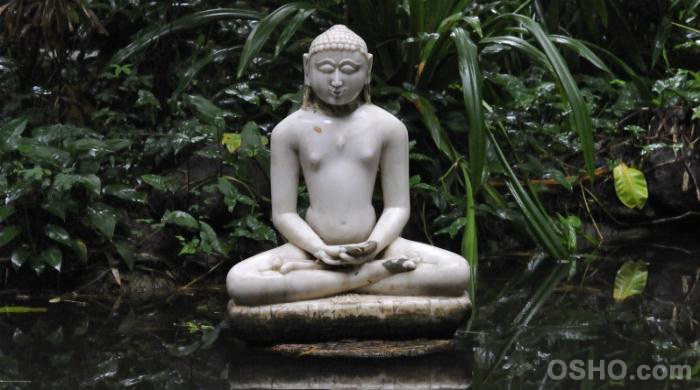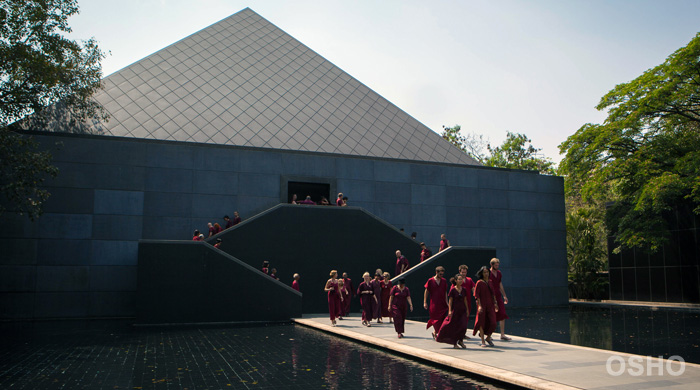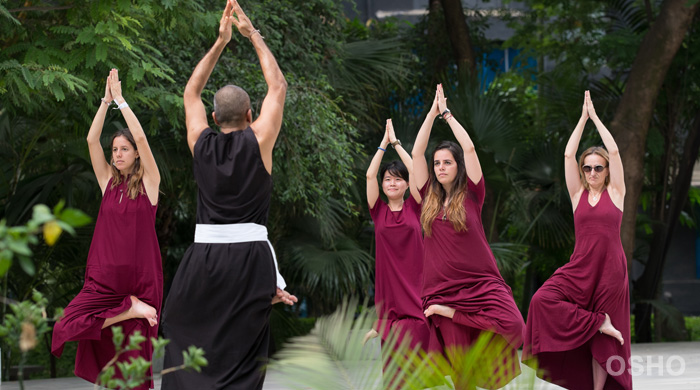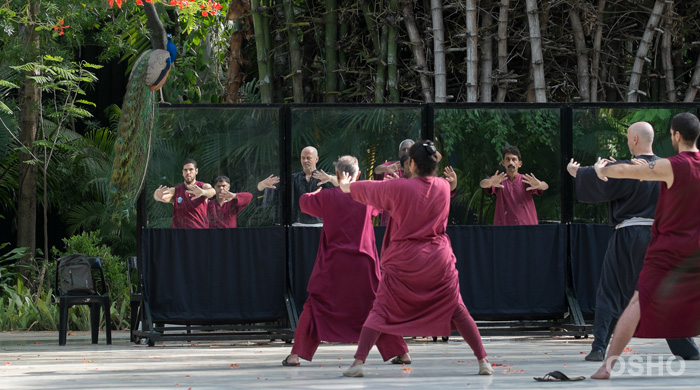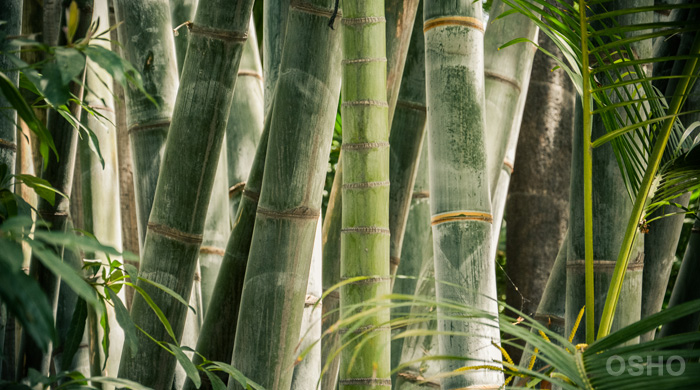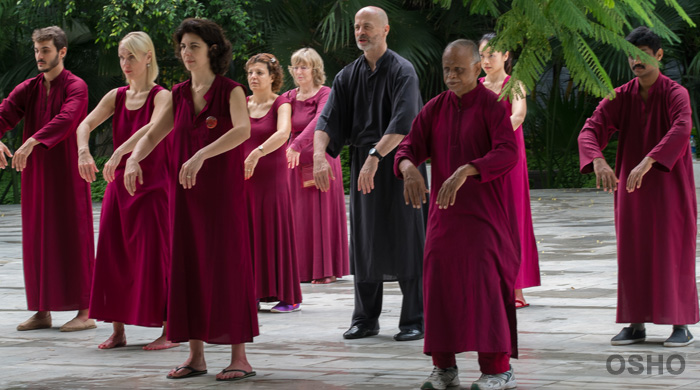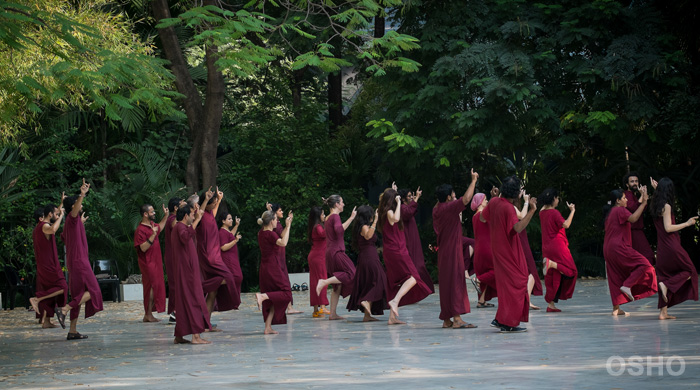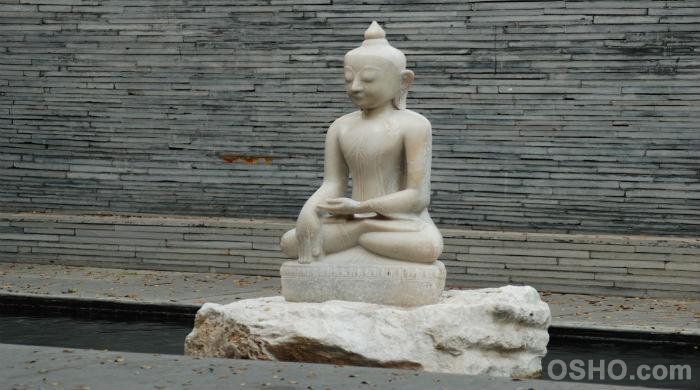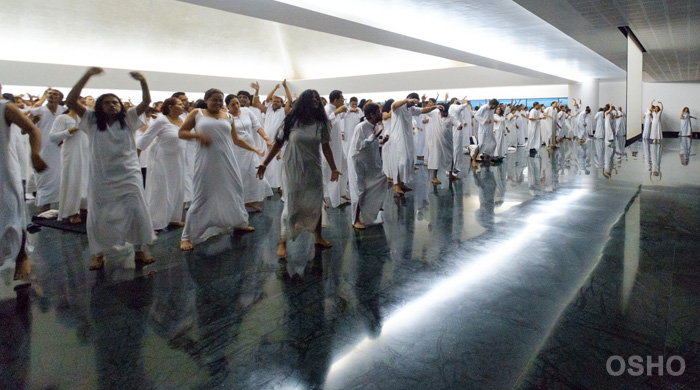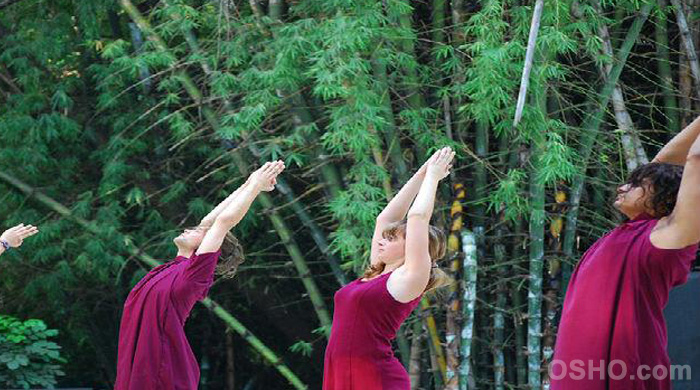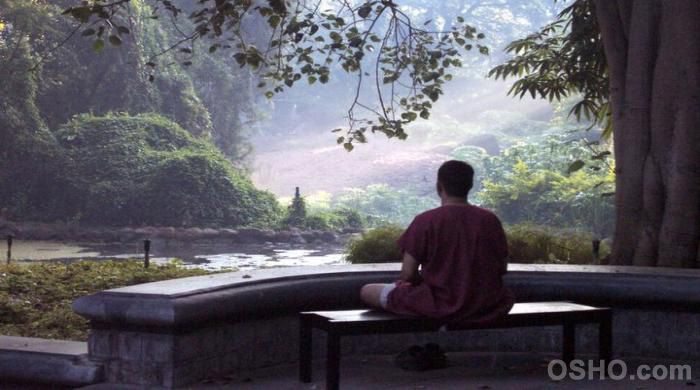Sahaja Yoga
Sahaja Yoga is the most difficult of the Yogas, because there is nothing more difficult than to be sahaja – effortless, natural and spontaneous. What is the meaning of sahaja? Sahaja means: let whatever happens happen, don’t resist it. To be sahaja means to flow like air and water, and not to allow the intellect to come in the way of whatever is happening.
As soon as the intellect comes in the way, as soon as it interferes, we cease to be sahaja, natural, and begin to be asahaja, unnatural. As soon as we decide what should be and what should not be, we immediately begin to be unnatural. And we become natural when we accept that which happens, that which is.
So the first thing to understand is that sahaja yoga is the most difficult yoga. Don’t think that it is very easy as the term suggests. There is a misconception that sahaja yoga is an easy way of sadhana or spiritual discipline. People quote Kabir: “Sadho, sahaj samadhi bhali; O seeker, natural ecstasy is the best.” Of course, it is the best, but it is also very difficult. Because nothing is more difficult for man than to be natural. Man has become so unnatural, he has traveled such a long way from being natural that now it is so easy for him to be unnatural and very difficult to be natural.
But then we have to understand a few things in this context, because what I am teaching is Sahaja Yoga. To impose doctrines and dogmas on life is to pervert life. But we all do it; we all impose doctrines and ideals on ourselves. Someone is violent and he is trying to be non violent. Someone is angry and he is trying to be peaceful. Someone is cruel and he is trying to be kind. The thief is trying to be generous, and the wicked to be saintly. This is the way we all are; we are always trying to impose something on what we are. But what is the result?
We not only fail when we fail in this endeavor, we fail even when we succeed as such. Because howsoever he may try, a thief cannot be generous; he can of course give to charity and he can have the illusion of being generous; but a thief’s mind will find ways to thieve through charity.
All the unnaturalness of our life is this – that we are always trying to be different from what we actually are. No, Sahaja Yoga will say, do not try to be other than what you are; know what you are and live it. If you are a thief know that you are a thief and live the life of a thief fully. This is very arduous, because even a thief feels gratified to think that he is trying to get rid of thieving. He does not rid himself of it really, but he feels relieved to think that although he is a thief today he will cease to be a thief tomorrow. Even the ego of a thief derives gratification from the thought that although he is compelled by circumstances to steal, a day will soon arrive when he will be a philanthropist, and not a thief. So in the hope of tomorrow he conveniently steals today.
Sahaja Yoga says: Know that you are what you are, and don’t try to move away from it even by an inch; don’t try to be different from it in the slightest way. The moment you become fully aware of its sin, its pain, its misery, its agony, its hellfire, you will immediately jump out of it and you will be free of it in no time; you will have to be out of it totally. If a thief fully knows himself to be a thief and does not entertain in his mind even the slightest thought that he will ever cease to be a thief; if he knows that he is a thief today and he will be a greater thief tomorrow, because in twenty-four hours his habit will be further strengthened; if he accepts his destiny as a thief fully and with full understanding, do you think he can remain a thief even for a moment? This awareness that he is a thief will sink into his heart like a bullet and it will be simply impossible for him to live with this condition even for a moment. In that very moment a revolution will happen, a mutation will take place.
To be sahaja, to be natural means: that which is, is: now there is no way to walk out of it; I have to live it; and I am going to live it, to be it. What is, is. Know this what is and live with it. That which is, is a fact; live with that fact. Live with the facticity of your life.
Sahaja Yoga means: don’t deceive yourself. Know and accept yourself exactly as you are and how you are without any reservations. If you do so, mutation will happen instantly. Mutation happens simultaneously with understanding and acceptance. Then you will not have to wait for it.
Will one wait till tomorrow if his house is on fire and he knows it? He will get out of his house in a split second!The day we fully see our life as it is – and it is a house on fire – the moment of mutation arrives. But we have our own deceptive ways. The house is on fire and we have decorated its interior with flowers. Our hands are in chains and we have coated the chains with gold, and so while we see the glitter of gold we fail to see the chains. We are full of illnesses and wounds, but we have covered our wounds with colorful bandages, and we see the colors and not the wounds behind them.
This deception is so deep and vast that we spend our lifetime in it and the moment of mutation does not come. We go on postponing that moment. Death comes, but not the moment that had been postponed. We die, but we do not change; we are simply incapable of changing.
The change, the mutation can happen any moment really. Sahaja Yoga says: live with what is, and you will be transformed. You don’t have to make efforts to change; truth changes. Jesus says, “Truth liberates.” But we don’t know the truth. We live in lies, we live in untruths; but we decorate our untruths before we live with them. And untruth binds, while truth liberates. Even the most painful truth is better than the most pleasant lie. The pleasant untruth is really dangerous. It will bind you; it will be your bondage. And even the painful truth is liberating, even its pain is liberating. So live with the painful truth, and don’t harbor lies however pleasant they may be. This is the whole of Sahaja Yoga. And then comes samadhi, ecstasy or awakening, or whatsoever you call it. You will not have to seek samadhi; it will come on its own.
What I call meditation, and what we have here, is a process of Sahaja Yoga. Here you accept all that happens to you; you let go of yourself completely and accept all that happens on its own. Otherwise it would be unthinkable that educated and cultured people, people who are affluent and sophisticated go crying and yelling, hopping and jumping and wildly dancing like crazy people. This is not an ordinary thing. This is something extraordinary and invaluable too.
That is why the spectator is bewildered and he doesn’t understand what it is all about. He feels bemused and then he laughs at the whole thing. But he is not aware that if he were to join you, he would go through the same bizarre experiences. Or maybe his laughter is just a defense measure. He laughs only to protect himself, he means to say through his laughter that he won’t do what you are doing; it is not for him. That is what he thinks, but his laughter on its part says something else. It says that he too has some thing to do with it. His laughter says that in a way he is really concerned with it. His ridicule indicates that if he were to participate in what is happening here he would do the same. He too has withheld and repressed himself; he too has suppressed his tears and laughters, his dances and his ecstasy.
Bertrand Russell said in his later days that civilization has robbed man of a few precious things and dance is one of them. He said that he could not think of standing in the middle of Trafalgar Square and dancing, although we claim that we are a free people and that we have more freedom than our ancestors ever had. He also observed that on the one hand it is trumpeted that the world has entered its era of liberty and freedom and on the other he was not free to dance in the marketplace, and if he did so the traffic police would immediately arrest him on the charge of obstructing the traffic! Moreover, he would be thought to be a mental case! Bertrand Russell also recalled that whenever he visited some primitive tribes dancing with abandon under the starry sky he painfully realized that the civilized man has really lost much that is valuable.
Civilization’s gains are small and its losses are enormous. The civilized man has lost his naturalness and simplicity, he has lost nature itself. And, more over, he is a victim of all kinds of perversions.
Meditation is a way of making you natural and simple, restoring you to your nature once again.
Osho, In Search of the Miraculous, Talk #8
To continue reading, click here
Patanjali: Scientist, Poet, Mystic

Patanjali. I call him the scientist of the religious wo....
Read More >Power Hazards and How to Avoid Them
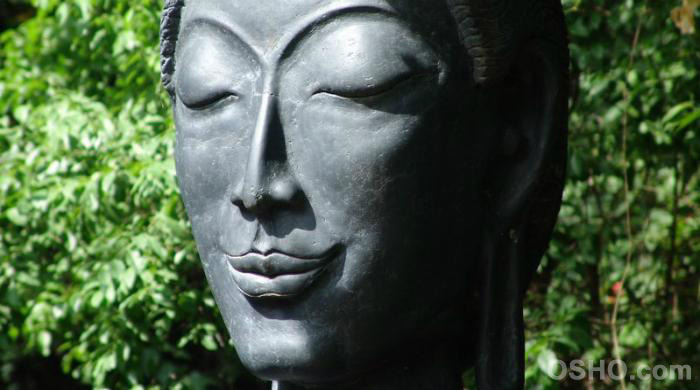
The five vows of ahimsa, satya, achaurya, brahmacharya ....
Read More >The Alchemy of Being: Brahmacharya
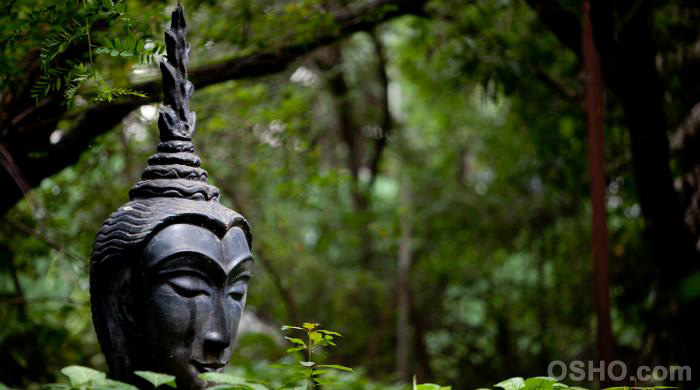
The third [of the five vows] is asteya, achaurya &ndash....
Read More >Avoiding Spiritual Constipation
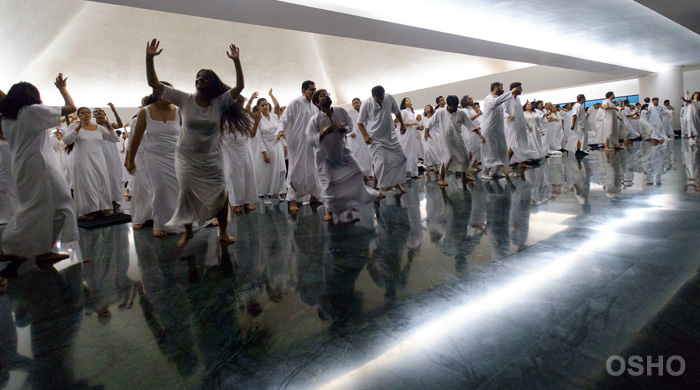
Only after brahmacharya, when you have attained to the ....
Read More >Yoga and Tantra: A Comparison

Yoga believes in struggle; Yoga is basically the path ....
Read More >Discipline: Working with the Inner Chaos

Yoga is nothing if it is not a discipline. Yoga is not ....
Read More >Your Route: The Path of the Ascetic or the Path of the Mystic?

There are two paths. One is the path of the warrior, th....
Read More >The Headstand: Where Are You Heading To?

Man standing on two feet created two things: it freed t....
Read More >The Path to Pure Subjectivity

After pranayam, breath regulation, is pratyahar, abstra....
Read More >Under the Influence of Grace

You exist in the world as a body; embodied, you exist h....
Read More >Why Yoga is Better than Drugs

Krishnamurti is right. Very difficult to understand, bu....
Read More >Traditional Methods for Contemporary Man?

Q: In traditional Yoga, one starts with the body &ndash....
Read More >The Universality of Dynamic Meditations
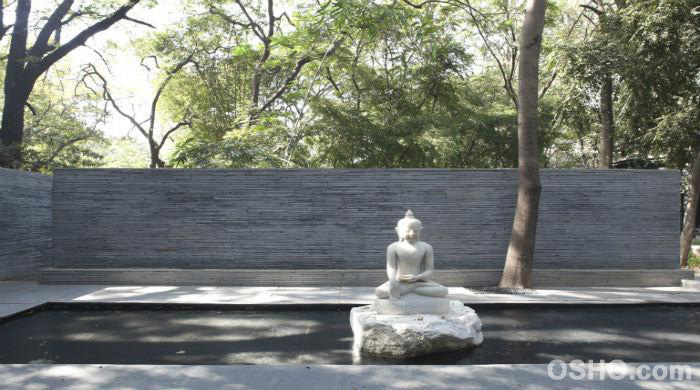
The Dynamic technique is really a very rare phenomenon.....
Read More >Kundalini: Actualizing Your Potential
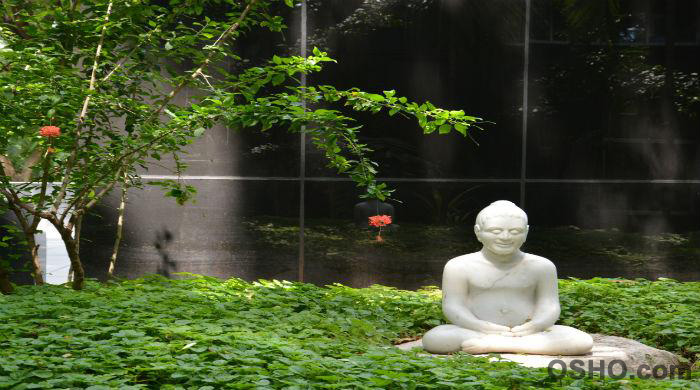
Existence is energy, the movement of energy in so many ....
Read More >Harmony: The Key to Transcendence

Life and death are only two states of energy. Life mean....
Read More >


